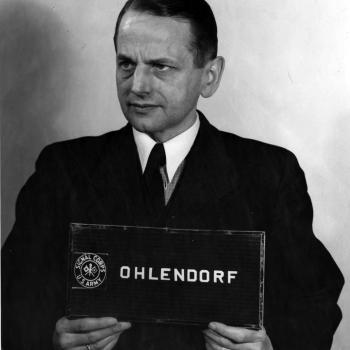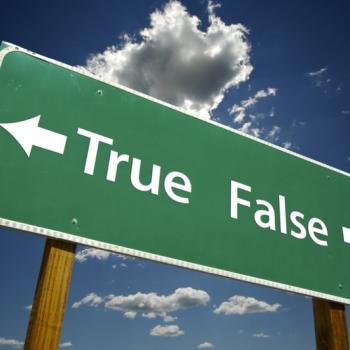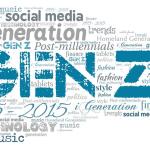More of Jesus and Less of John Wayne: Prescription for American Evangelicalism
*Note to would-be commenters: Know that this is not a discussion board; your comment may or may not be approved to appear here. If you hope for it to be approved and appear here, make sure it is relatively brief, on topic, addressed to me, civil and respectful, not hostile or argumentative, and does not contain a link or photo.*
I finally finished reading “Jesus and John Wayne: How White Evangelicals Corrupted a Faith and Fractured a Nation” by Kristin Kobes Du Mez. Please know that this is not a formal review but a personal response.
Du Mez’s basic, overall thesis is that white American evangelicals by and large fell into an ideology of militant masculinity combined with rabid Americanism that let to all kinds of terrible things from rampant abuse of women and children by Christian male leaders (and non-leaders who followed them), to attempted cover ups and false justifications of such abuse, to the election of a president with a history of misogyny including admitted sexually aggressive behavior toward women (and other terrible things).
Reading the book, which includes numerous accounts of such abuses by white American evangelicals, was a depressing experience for me. I already knew about most of what she writes about, but it still saddened me to the point of struggling to finish the book. The only comfort I could take was that I left that evangelicalism behind long ago and that I have never regarded John Wayne a role model for Christian boys or men.
In brief, Du Mez is neither wholly right nor wholly wrong. But even if she is partly right, the situation to which she points is extremely dismaying.
My strong recommendation is that you read the book and consider its argument for yourself. My advantage here is that I lived through much of the history of white American evangelicalism and was knowledgeable about the events and circumstances about which she writes. My disadvantage is being a white American male and evangelical. To her, I suspect, that makes me partially blind to the real cause of the terrible situation about which she and I agree—that white American evangelicalism has largely gone off the rails.
Where is she right? She cites numerous cases of male misconduct by American evangelical influencers. She is right that this situation was and is a terrible scandal. Where is she partly right but partly wrong? She says that this misconduct is endemic to evangelicalism itself. The naked statistics make that claim reasonable while knowledge of white American evangelicalism from the inside raises some doubts about it. Where is she wrong? In my opinion, she fails adequately to distinguish between “evangelical” and “fundamentalist.” By far the majority of men (and some women) she highlights as perpetrators of abuses (and cover ups and false justifications) were and are fundamentalists more than true postfundamentalist evangelicals. However, admittedly, the line between the two camps has become very blurry in the decades since, say, 1980.
Toxic, militant, distorted masculinity has undoubtedly been a huge problem among white American evangelicals. Du Mez does not help readers understand what undistorted masculinity might look like. The vast majority of white people who call themselves evangelicals in America have, indeed, fallen into a mentality of jingoistic Americanism combined with militant masculinity. Du Mez does not help readers understand what the alternative for evangelicals might look like.
Du Mez is not wrong, but the book reads like a jeremiad without enough points of light and hope. Here and there, scattered throughout the book, there are many statements that make me wonder if she knows what she is talking about. These are mostly in details, anecdotes, asides, about individual people and organizations.
Earlier here I mentioned her gross error, which she said was due to reliance on a secondary source, about 1950s gospel song writer and recording artist Stuart Hamblin. Just to mention one more claim that made me (and my wife) scratch me/our heads—her description of Hobby Lobby as a kind of church for white American women (or at least a pilgrimage site where they have a kind of religious experience). My wife loves Hobby Lobby but not for the things Du Mez describes. I have gone with my wife to many Hobby Lobby stores many times and neither one of us has seen what she describes. But more specifically, we wonder why she off-handedly mentions Chip and Joanna Gaines in connection with Hobby Lobby’s alleged participation in attempting, consciously or unconsciously, to support gender separation. I have met them, know people who have worked closely with them, and my wife and I have watched almost all of their television shows.
Repeatedly through “Jesus and John Wayne” Du Mez offhandedly mentions specific people, books, events who don’t clearly fit into her narrative as if they do.
Some who do fit her narrative were and are not representatives of white American evangelicalism; they were and are clear examples of far-right fundamentalists, actually cultic in nature.
And I wonder why she thinks churches and Christian organizations that encourage boys to be wild and adventurous without hurting anyone are automatically bad. She seems to me to broaden out toxic, militant masculinity to include all typical maleness.
Finally, she does not seem to me sufficiently to acknowledge the dangers within modern, secular (and increasingly pagan) American society to which her “bad evangelicalism” was and is an over reaction.
Clearly, Du Mez intends to prescribe greater focus on Jesus and less admiration for John Wayne—for a healthier white American evangelicalism. I only wish she had said more about that. Here I have often argued that all Christians need to study and look to Jesus rather than admire and follow allegedly great white American Christian celebrity pastors, writers, evangelists, etc. And I will get more specific. In my humble opinion, for what it’s worth, if anything, the mega-church movement in American evangelicalism, both black and white, has been a disaster. I cannot see Jesus attending one. I think he would rebuke them as nothing he ever intended for his disciples. Mass evangelism is one thing; seeker sensitive mega-church as Christian entertainment venue is something else entirely.
















